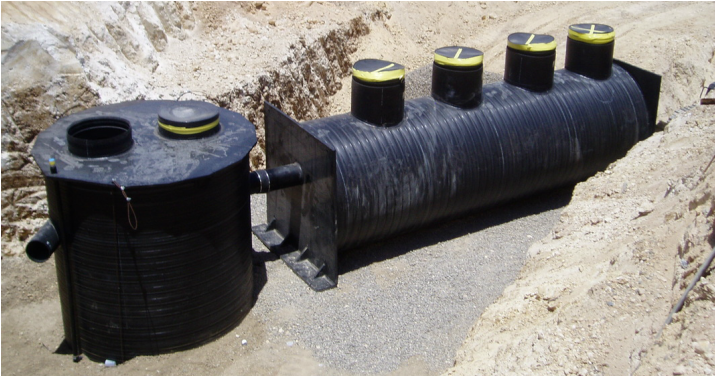|
When considering a stormwater filtration system, engineers have an array of choices. So, it’s important to first consider these short and long-term outcomes and options when drafting a project’s specifications.
1. What flow rates are available with the system? This can vary widely. At first glance it may appear that the highest flow rate is the best; after all, it can better handle high water rates in storms and floods. However, it’s not that simple, which leads us to the next question. 2. 80 percent removal of what? Too often, stormwater filtration systems are not tested consistently, lacking apples to apples comparisons. This leads to challenges for engineers trying to meet regulations that can differ broadly across the country. The specs may state that a filtration device meets the 80% removal rate, but if lab testing relied on a larger particle size than another system, you might not be getting the whole picture. Make sure you ask about the particle size that was used in the product’s testing to confirm that it meets your desired filtration expectations. Don’t skip out on quality just to achieve a higher flow rate. 3. What field tests were used? Best-case scenario is to select a product that has been tested by a third party, outside the lab under real world conditions. Stormwater runoff contains all sorts of material from tree branches, to sediment to car oil. Product performance can’t truly be measured by lab testing alone. 4. What are the installation requirements? Engineers walk a tightrope while juggling installation timelines, client demands and budgets. Ask early about what equipment will be required for installation, especially if special circumstances exist. Will shipping require road closures? How long until it is ready? What about backfilling? 5. What are the storage capabilities? Compare the sediment storage as well as the oil and debris storage, then consider what this means for maintenance and long-term life of the equipment. Can your client save more over 5 years by investing now? 6. What filter media options are available to my client? Take the time to ask extra questions about the filter media, how easy is it to use, what filter options are available for site-specific contaminants of concern, and how often it requires replacement. By analyzing the stormwater filtration system up front, engineers can bring added value to their clients by helping address concerns before they happen, and helping achieve progressive stormwater management for the long term. Do you have questions? Reach out to us to discuss your stormwater filtration needs. We’re ready to answer your toughest questions.
5 Comments
10/25/2017 04:01:23 pm
Thanks for sharing some queries to ask about stormwater filtration systems! I do agree with what you said, in "What field tests were used?", that lab testing isn't fully capable to test the product a hundred percent. A third party inspection would really help out a lot on the product's testing phase. I'd be sure to remember these questions and practice them. We are currently looking for reliable stormwater filtration systems to be installed in our new home. That should help our search be easier.
Reply
3/30/2018 05:41:25 pm
These are great questions to ask when planning on having a stormwater drainage system installed. It is smart to ask what field testing has been used. I would want to make sure that a system works before installing it on my property.
Reply
4/18/2018 04:20:40 pm
I want our planet to be healthy again, and I think that each of us could help by doing even the littlest of things to save the earth. Recycling has been one of the options since forever. But I never knew that there is an equipment that you can take home where you can recycle stormwater. It really helped when you said that we should communicate with the experts to learn more about the system and also address possible concerns. Thanks!
Reply
I appreciate when you said that we need to ask about the size of the particle used in the testing process to determine if it is the filtration type that you need. I think this is important in the sense that there might be different factors contributing to the type of water we are getting from the rain in our area, such as if the place is more polluted than others or else. And I will definitely do my research and consult with experts because I plan to get one for my home to have another source of water to reduce my bill monthly in the long run. Being informed about these things will also be an advantage when it comes to the stormwater system maintenance services that I am getting in the future which means that I will not have that much to worry about regarding the performance of the system.
Reply
Leave a Reply. |
AuthorAquaShield staff keeping you up to date on the latest in stormwater solutions. Archives
December 2015
Categories
All
|
|
AquaShield, a Komline Company
2733 Kanasita Drive, Suite 111 Chattanooga, TN 37343 Toll Free: 888.344.9044 | Phone: 423.870.8888 © 2000-2024 AquaShield™. All Rights Reserved. |



 RSS Feed
RSS Feed